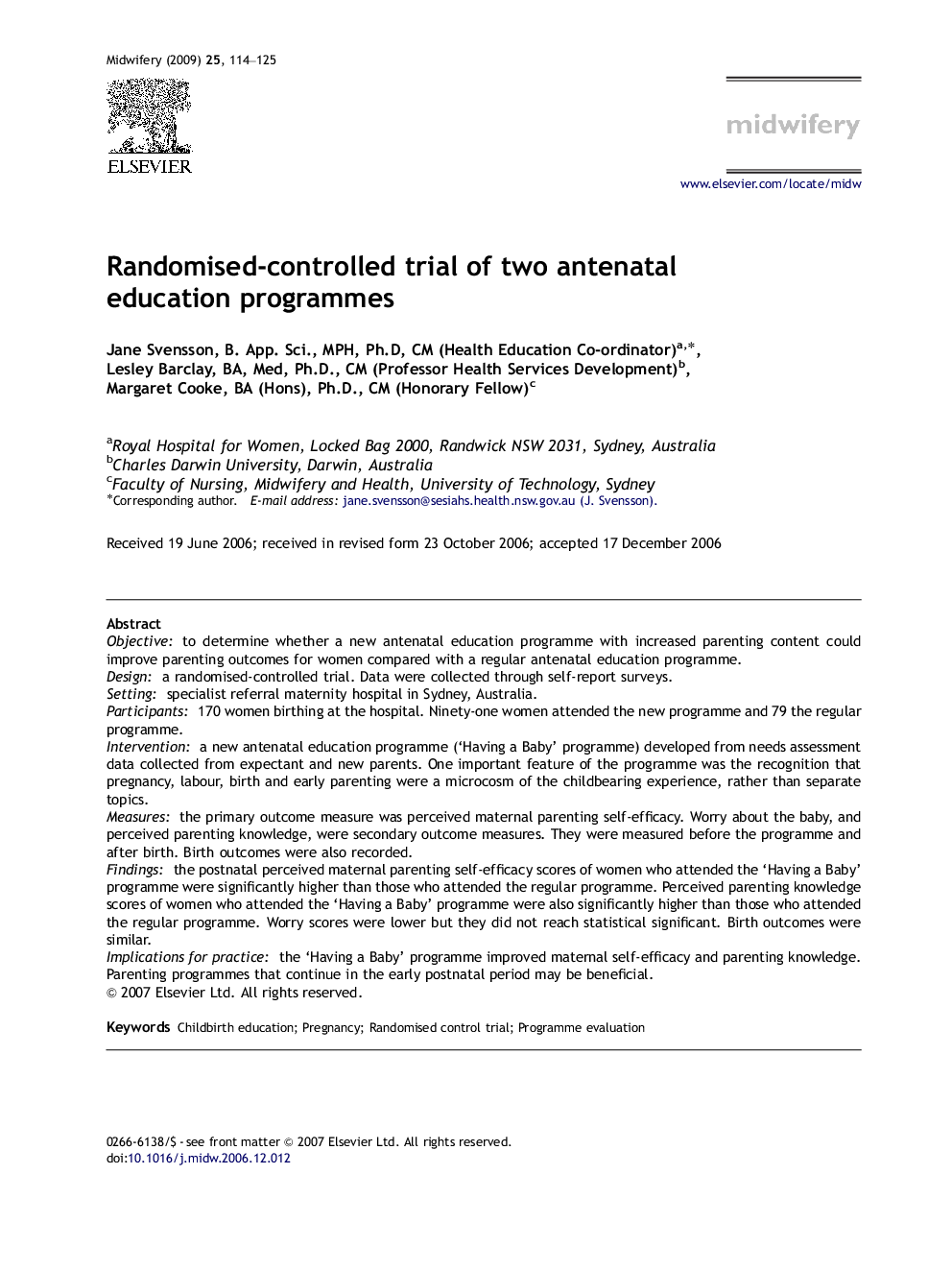| Article ID | Journal | Published Year | Pages | File Type |
|---|---|---|---|---|
| 1085458 | Midwifery | 2009 | 12 Pages |
Objectiveto determine whether a new antenatal education programme with increased parenting content could improve parenting outcomes for women compared with a regular antenatal education programme.Designa randomised-controlled trial. Data were collected through self-report surveys.Settingspecialist referral maternity hospital in Sydney, Australia.Participants170 women birthing at the hospital. Ninety-one women attended the new programme and 79 the regular programme.Interventiona new antenatal education programme (‘Having a Baby’ programme) developed from needs assessment data collected from expectant and new parents. One important feature of the programme was the recognition that pregnancy, labour, birth and early parenting were a microcosm of the childbearing experience, rather than separate topics.Measuresthe primary outcome measure was perceived maternal parenting self-efficacy. Worry about the baby, and perceived parenting knowledge, were secondary outcome measures. They were measured before the programme and after birth. Birth outcomes were also recorded.Findingsthe postnatal perceived maternal parenting self-efficacy scores of women who attended the ‘Having a Baby’ programme were significantly higher than those who attended the regular programme. Perceived parenting knowledge scores of women who attended the ‘Having a Baby’ programme were also significantly higher than those who attended the regular programme. Worry scores were lower but they did not reach statistical significant. Birth outcomes were similar.Implications for practicethe ‘Having a Baby’ programme improved maternal self-efficacy and parenting knowledge. Parenting programmes that continue in the early postnatal period may be beneficial.
